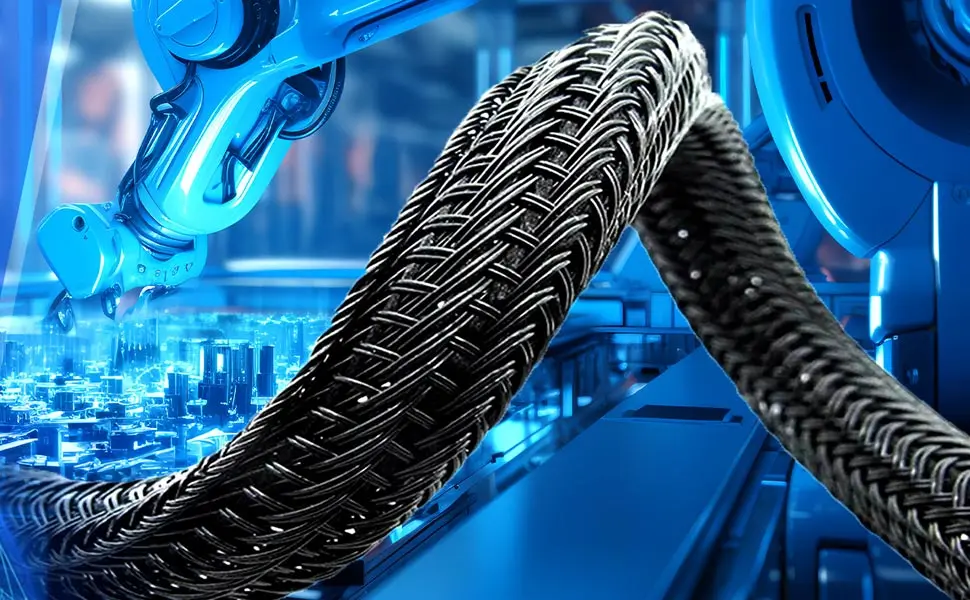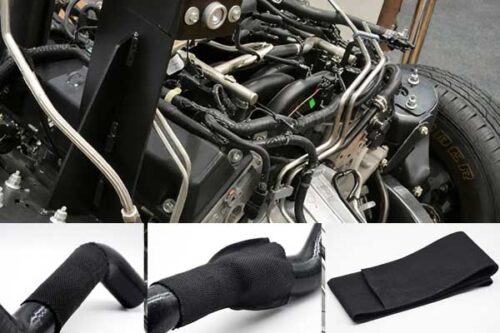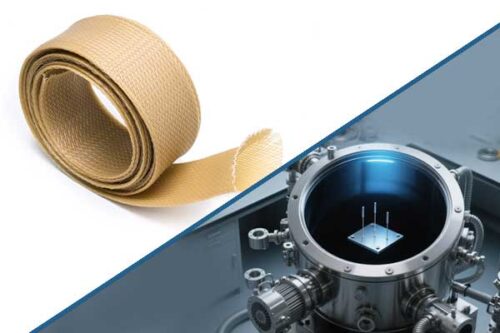1.Key Challenges in Automotive Wiring Protection
Automotive wiring faces extreme conditions:
- Engine Compartment Heat: Up to 200°C+ near exhaust systems
- Abrasion Risks: Vibration against metal parts requires sleeves with ≥500,000 flex cycles
- Chemical Exposure: Oil, coolant, and acid resistance
- Flammability Standards: Must meet IATF16949 + UL94V0

2. Critical Selection Criteria
| Parameter | Minimum Requirement | MJ-Flex Advantage |
| Temperature Range | -40°C ~ 200°C | 40°C~300°C |
| Flame Resistance | UL94V0 | UL94V0 + EN45545-2 |
| Abrasion Resistance | >100,000 MIT flex cycles | 300,000+ cycles |
| Chemical Resistance | SAE J20 Oil Immersion Test | Full test reports |
| Certification | IATF16949 + RoHS | IATF16949 + ISO14001 |
3. Step-by-Step Selection Process
Step 1: Define Thermal Requirements
- Underhood: Choose 260°C+ rated sleeves
- EV Battery: 150°C with flame retardancy
Step 2: Verify Material Composition
- Avoid PVC (deforms at >105°C)
Step 3: Check Industry Certifications
- Must-have: IATF16949
- Value-add: UL Cetified + EN45545
Step 4: Test Physical Durability
- Abrasion test videos
- 3rd-party flammability reports
4. Why MJ-Flex Outperforms?
- Automotive Focus: IATF16949
- Eco Advantage: 100% recyclable PET


